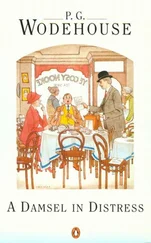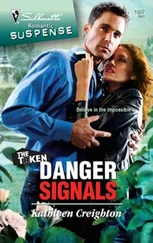It had gone nine before the mongrels were released. They ran at once towards the hut where Whip was sleeping. There were no men about. Whatever had been making her dogs uneasy, she’d have to handle it on her own. Rosie Bowe took a heavy piece of firewood as a cudgel and followed them. At best she’d find a hedgehog for the pot. At worst? Some thief who’d stolen lodging for the night would still be sleeping there.
She was perplexed when she found Whip, her back bowed and her tail between her legs, sheltering in the hut. Rosie knew the dogs for miles around, and this one wasn’t familiar. She pulled the ensign from the collar and put it in her apron front. It was a tough and decent bit of cloth. She let her mongrels stay. Let dog police dog, she thought. It was too cold to kick the bitch herself. But the three dogs were in a playful mood, happy to chase tails. Rosie left them to it. She had work to do. There’d be storm kelp on the beach, easy to collect after such a tide and such a wind. Her cart would soon be full. With her daughter Margaret’s help they’d have a dozen loads before the tide was in and (with the agent Howells paying thirty shillings a ton for prepared kelp ash) would earn a welcome three or four shillings for their efforts.
‘Miggy! Miggy Bowe!’ she shouted at the window of their cottage. ‘Get yourself up and out of there. This in’t the Sabbath yet.’ She put her head round the door and spoke more gently. ‘Come on, we’ll get ourselves a good penny if we’re keen.’
‘No, Ma, it’s hurtin’ damp out there.’
‘Warm yourself with work. Let’s not be idle. I’ll let the dogs inside to get you up. We’ve three dogs now. Our two have found a bitch to chase around.’
‘Whose bitch is that?’
‘She’s ours, to keep or sell. She’s sleeping in our hut, and that’s the law. Or ought to be. Get out of there. Miggy! I’m warning you. It won’t be dogs’ll get you up, but me.’
Rosie stepped inside and showed her daughter the firewood cudgel. ‘I can give a decent bruise to idle girls.’
‘Oh, Ma! You gonna lay a fire, or what?’
‘No fire on Saturdays. Not till it’s dark at least. This in’t the inn. We’ll have a fire down on the beach if you move fast. I’ll bet there’ll be the wood washed up. Did that wind wake you in the night? Does mutton dance quadrilles?’
‘I’d like a bit of mutton though.’
‘You’d better press your finery then and find yourself a farmer’s son. There’ll be no mutton till you do. Here, make yourself a gown from that!’ She threw the red-and-white cloth on to her daughter’s blanket. ‘That should turn some farmboy’s head. He’d turn away if he had sense.’
Miggy Bowe didn’t mind. She knew enough to guess she was good-looking. ‘It’s off a ship,’ she said. ‘A signal flag.’
‘The little dog was wearing it for a kerchief,’ her mother said.
‘What kind of dog is she?’
‘A hairy little sharp-toothed bitch. Much like you. Only she’s up and dressed for work and running in the yard, while you’re still on your back. Come on now, Miggy girl. There’s been enough of this. I’ll get the cart and you can earn your supper.’
Miggy Bowe tied her hair back in a knot, put on men’s working breeches and her thickest smock, and wrapped the Belle ’s cloth call for help round her throat as a scarf. It gave a reckless dash of colour to a face that had no warmth. Her mother was the cheerful kind. Rosie Bowe would sing in rain and mud. But Miggy was young enough at seventeen to be a pessimist. Where would she be at thirty-four, her mother’s age? Still carting kelp. At fifty-one? Cold as stone, with any luck, and nothing to her name except a wooden cross. She petted her two dogs and then inspected Whip, her teeth, her paws, her collar, her little beard. With luck they’d get some puppies out of her in spring.
‘Come on, you little lady,’ she said. ‘Let’s have a look down on the shore.’ Miggy and the dogs ran to catch up with Rosie, who was wheeling the handcart towards the dunes.
THEY SAW the cows from Quebec before they saw the sea. They’d never seen so many cows at once.
‘You called for mutton, Miggy. The good Lord sends us beef.’
‘Whose cows are they, Ma?’
‘That little dog has come with them, that’s all I’m certain of.’
‘What’s stopping us from salting one?’
Her mother didn’t answer. She half guessed that there’d be some wreckage and some carnage on the shore — and, if there was, then who could stop them slaughtering one cow before the excise men got wind of it? There’d be better pickings than the kelp. Bullion, jewels and plate had been beached the other side of Wherrytown a dozen years before. Tobacco, tea and lace would suit them well. There would be sailcloth and timber for the house, at least. Winter beef. Wrecks were a godsend. Rosie almost ran.
Rosie Bowe was the first woman that the sailors had seen since they left Montreal. They watched her, strong and buoyant, pick her way between the cows and descend with her handcart down the backshore to the beach. They saw another figure, too — a smallish boy in breeches and a smock. He had three dogs. The Americans had spent six hours in the rigging but had been warmed and dried a little by the breeze and sun, so managed quite a spirited cheer when the seaman, Parkiss, who had the ship’s glass, reported that the smallest dog was their own Whip. The dog, perhaps, had saved their lives.
They’d have to wait another hour. A kelper’s handcart couldn’t bring them ashore. Rosie sent her daughter running down the coast. The nearest fishermen were beached below the Cradle Rock, a mile away. They’d come out in their boats. She waved back at the sailors but didn’t know how she could signify across so wide and watery a gap that help was on its way. She pushed her cart along the tideline and put the morning to good use. As she had expected, the storm had deposited a lot of kelp on the beach. She chose the knobweeds and the bladderwracks because their yields of soda were the best. She kicked aside the sugar wrack. A cartload of that would only give a quarter-bucketful of soda ash. She lifted the weed with her right hand and kept her left hand free to seize the crabs that often sheltered underneath the kelp or the lance eels which could be twitched out of the sand if she were quick enough. When she found timbers from the Belle and broken lengths of rigging she wrapped them up in kelp and hid them on the cart. She watched the water as she worked for bobbing bottles of brandy and liqueur, but all she spotted was the ready-salted carcass of a cow, floating on its side, and masts and planking from the ship tangled in the offshore weed. Quite soon her cart was full. She pulled it back into the dunes where she had built a stone pit for burning kelp. She buried what she’d salvaged from the Belle in a soft dune, and spread the load of kelp to dry over the disturbed sand. She’d gathered three more loads of weed before the seine boats of the fishermen appeared beyond the bar and breathless Miggy, her breeches caked in mud, her pulse quickened by the run and what was promised by the Belle , reappeared amongst the kelp, the wreckage and the cattle on the beach.
ONE MAN — Nathaniel Rankin, a seaman from Boston — was dead, concussed by falling timber in the night and drowned. But sixteen had survived. They had been fortunate to end up on the bar. The three seine boats that came to rescue them were secured to the Belle ’s hull in water hardly deep enough for their keels. The dozen oarsmen helped the Americans to climb into the boats. They wrapped the men in blankets and gave them corn-brandy in water from their flasks. Comstock brought his charts and letters of command. He ought, perhaps, to leave a crew aboard or stay aboard himself. He ought to love his ship more than he loved his own life, but he didn’t. The gear was clewed and stowed. The sails were off. The larboard bow was holed, but it wasn’t shipping much water. Yet. What else was there to do? He dignified himself and called down from the damaged deck, ‘I trust you gentlemen will help us salvage what we can when we are warm and dry.’
Читать дальше












